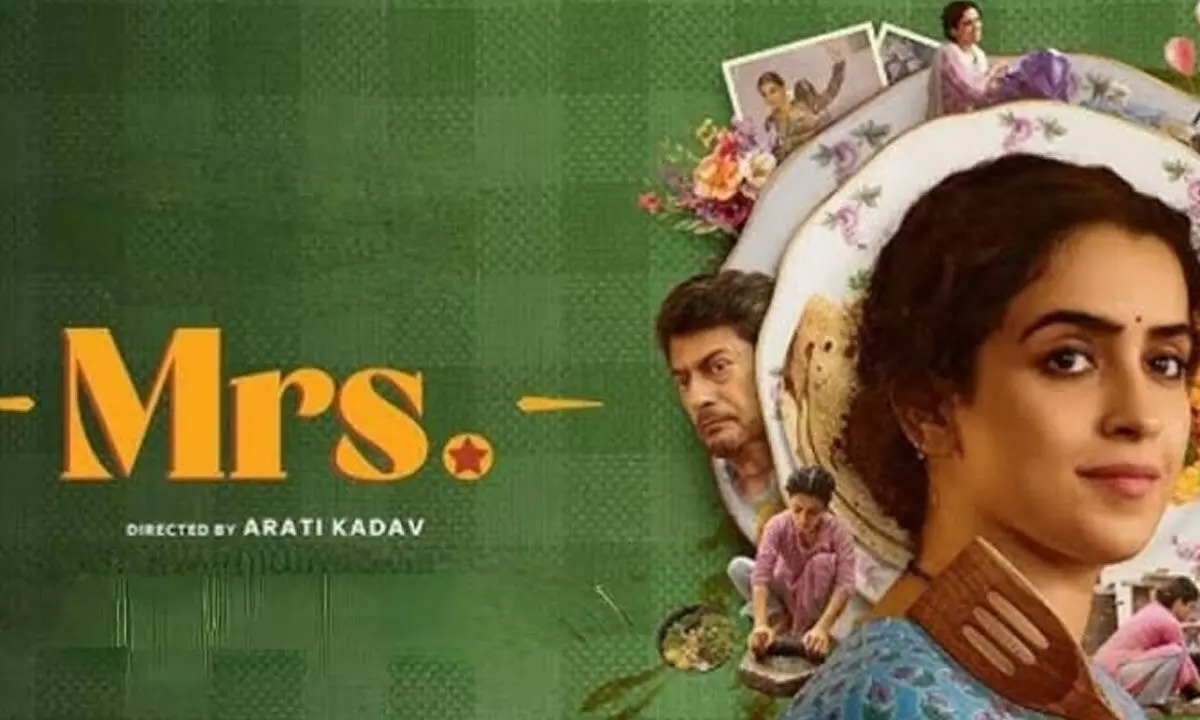Mrs. Review: A Realistic Heartbreaking Portrait of Oppressive Marriage and Silent Endurance

Marriage is often seen as a journey of companionship, love, and mutual growth
Marriage is often seen as a journey of companionship, love, and mutual growth. But for many women, it becomes a slow erasure of self, where their dreams, desires, and even basic dignity are sacrificed at the altar of tradition and duty. ZEE5’s latest film Mrs., starring Sanya Malhotra, brings this harsh reality to the forefront. A Hindi adaptation of the acclaimed The Great Indian Kitchen, Mrs. may not carry the same raw intensity as the original, but it remains an unsettling, thought-provoking exploration of patriarchal oppression.
Story
Richa (Sanya Malhotra) enters an arranged marriage with Diwakar (Nishant Dahiya), a well-educated doctor who initially seems like a caring and respectable partner. On their wedding day, her father-in-law (Kanwaljit Singh) welcomes her warmly, assuring her that she is now a daughter of the house. However, this illusion quickly shatters.
As she settles into her new home, Richa finds herself drowning in expectations. She is expected to cook elaborate meals, follow outdated customs, and silently serve the household, all without acknowledgment or appreciation. Her father-in-law enforces rigid traditions, while her husband sees her more as an obligation than a partner. Even her father-in-law’s seemingly affectionate words are soon revealed to be empty, his obsession with discipline and control strips her of any autonomy.
Richa’s distress isn’t just met with indifference, it’s normalized. When she turns to her mother for support, she is told to “adjust” and accept her fate, reinforcing the generational cycle of silent suffering. Her existence in the house becomes mechanical, her ambitions slowly withering under the weight of relentless expectations.
Performances & Direction
Sanya Malhotra delivers a hauntingly powerful performance, embodying Richa’s transformation from a hopeful young woman to someone crushed by daily humiliation. Her subtle expressions, whether it’s the forced smile while serving food or the suppressed frustration in private, speak volumes. One of the film’s most gut-wrenching moments is when she jokingly refers to herself as a glorified maid, masking her pain with humor.
Nishant Dahiya is disturbingly believable as the outwardly respectable yet emotionally absent husband. He plays Diwakar with chilling restraint, making his passive misogyny all the more unsettling. The gaslighting, the dismissiveness, the cold expectation that Richa must conform, it’s a performance that leaves you seething.
Kanwaljit Singh is equally brilliant, portraying the overbearing father-in-law who wields control through subtle yet crushing dominance. His character embodies the suffocating generational patriarchy that operates under the guise of tradition.
Director Arati Kadav ensures that Mrs. never resorts to melodrama, instead letting the everyday horrors of domestic life unfold in a disturbingly natural manner. The film’s slow-burn storytelling allows viewers to feel Richa’s exhaustion, frustration, and eventual realization that her life is slipping away.
Analysis
Mrs. doesn’t just critique patriarchy; it exposes how deeply ingrained it is, how even women are conditioned to uphold it, and how societal norms reduce marriage to an institution of silent servitude for many women. The film’s biggest strength is its relatability, whether it’s the expectation that women must prioritize domestic duties over personal ambitions or the casual dismissal of their struggles, Mrs. forces us to confront uncomfortable truths.
While Mrs. lacks the raw, unfiltered impact of The Great Indian Kitchen, it still manages to leave a lasting impression. The film makes you uneasy, enraged, and most importantly, reflective. With stellar performances, poignant storytelling, and an unflinching look at domestic patriarchy, Mrs. is an essential watch. It may not be as viscerally intense as its predecessor, but its message is just as urgent. A film that doesn’t just tell a story, it holds up a mirror.
















